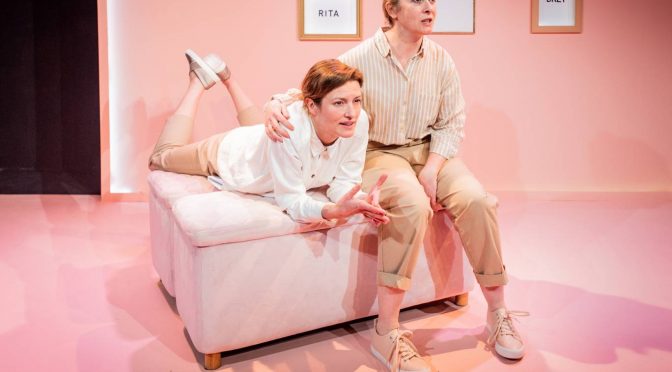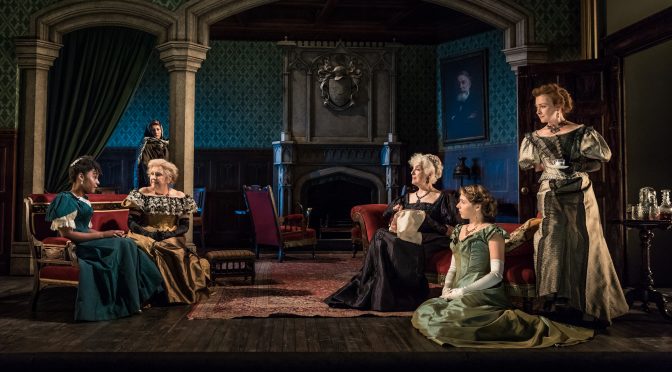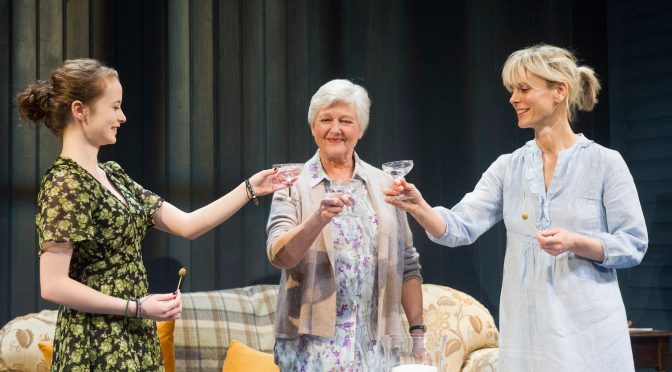Maud Dromgoole’s play is inspired by the real-life story of ‘Barton’s Brood’, where a fertility clinic run by Mary Barton, with her husband as one of very few sperm donors, resulted in the world’s biggest family. Updating the action to the present day and imagining efforts to reunite a complex network of siblings, some of whom don’t want to know each other, and a couple who have already got too close, provides plenty of plot that this short show manages to explore in surprising depth.
Thirty-one scenes are well-paced, and director Tatty Hennessy does a good job with their variety. Despite the help of Anna Reid’s design, which lights up characters’ names when they are on stage, things are still confusing at times. Sorry to be a bit dim. Some scenes are unnecessarily gnomic, playing with who’s who when the facts are already complicated. And although the play is funny, with Dromgoole handling sensitive issues boldly, not quite enough jokes land. Nonetheless, there’s some excellent characterisation and the dialogue sounds fresh, if not always believable. Two big puzzles come with the only characters not named: a registrar of births, marriages and deaths and, bizarrely, a grieving ventriloquist. The humour here falls flat and the motivation is a real question. Both scenes indicate an overall lack of polish.
While the script is interesting, the performances are superb. This is a play about a large number of people… with only two performers! Emma Fielding and Katy Stephens take on 17 roles each – male and female, of different ages and backgrounds (more credit to Dromgoole for how many issues this raises) and they do so impeccably. The accents do a lot of work, of course, but it’s hugely impressive to see some characters really stand out. Kieran, the “lynchpin” bringing the family together, is skilfully highlighted by Stephens, while Fielding makes a nurse who interacts with several characters a vivid role. In one party scene, nearly everyone appears, providing a heady theatrical moment where the play’s ambition and execution come together in memorable style.
Until 13 April 2019
Photo by Robert Workman



